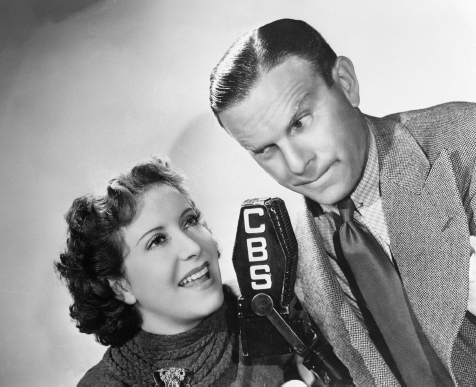CBS and Paley: Challenging NBC
“Overnight, it seemed, everyone had gone into broadcasting: newspapers, banks, public utilities, department stores, universities and colleges, cities and towns, pharmacies, creameries, and hospitals.”
TOM LEWIS, RADIO HISTORIAN
Even with RCA’s head start and its favored status, the two NBC networks faced competitors in the late 1920s. The competitors, however, all found it tough going. One group, United Independent Broadcasters (UIB), even lined up twelve prospective affiliates and offered them $500 a week for access to ten hours of station time in exchange for quality programs. UIB was cash-poor, however, and AT&T would not rent the new company its lines to link the affiliates.
Enter the Columbia Phonograph Company, which was looking for a way to preempt RCA’s merger with the Victor Company, then the record company’s major competitor. With backing from Columbia, UIB launched the new Columbia Phonograph Broadcasting System (CPBS), a wobbly sixteen-affiliate network, in 1927. But after losing $100,000 in the first month, the record company pulled out. Later, CPBS dropped the word Phonograph from its title, creating the Columbia Broadcasting System (CBS).

In 1928, William Paley, the twenty-seven-year-old son of Sam Paley, owner of a Philadelphia cigar company, bought a controlling interest in CBS to sponsor their cigar brand, La Palina. One of Paley’s first moves was to hire the public relations pioneer Edward Bernays to polish the new network’s image. (Bernays played a significant role in the development of the public relations industry; see Chapter 12.) Paley and Bernays modified a concept called option time, in which CBS paid affiliate stations $50 per hour for an option on a portion of their time. The network provided programs to the affiliates and sold ad space or sponsorships to various product companies. In theory, CBS could now control up to twenty-four hours a day of its affiliates’ radio time. Some affiliates received thousands of dollars per week merely to serve as conduits for CBS programs and ads. Because NBC was still charging some of its affiliates as much as $96 a week to carry its network programs, the CBS offer was extremely appealing.
By 1933, Paley’s efforts had netted CBS more than ninety affiliates, many of them defecting from NBC. Paley also concentrated on developing news programs and entertainment shows, particularly soap operas and comedy-variety series. In the process, CBS successfully raided NBC, not just for affiliates but for top talent as well. Throughout the 1930s and 1940s, Paley lured a number of radio stars from NBC, including Jack Benny, Frank Sinatra, George Burns, Gracie Allen, and Groucho Marx. During World War II, Edward R. Murrow’s powerful firsthand news reports from bomb-riddled London established CBS as the premier radio news network, a reputation it carried forward to television. In 1949, near the end of big-time network radio, CBS finally surpassed NBC as the highest-rated network. Although William Paley had intended to run CBS only for six months to help get it off the ground, he ultimately ran it for more than fifty years.